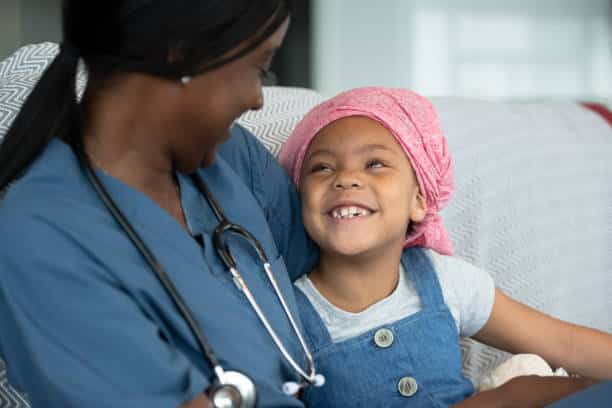
Childhood cancer refers to a group of diseases that affect children from birth through age 14, while adolescent cancers impact those between ages 15 and 19. Though cancer in children is relatively rare compared to adults, it remains one of the leading causes of disease-related death among young people in the United States.
According to recent projections, approximately 9,550 children in the U.S. will be diagnosed with cancer in 2025. Thanks to significant advances in research, diagnostics, and treatment over the past several decades, survival rates have improved dramatically. Today, about 85 percent of children diagnosed with cancer survive five years or more, a remarkable leap from the 58 percent survival rate recorded in the mid-1970s.
However, survival is only part of the story. The type of cancer, the intensity of treatment, and individual patient factors all influence long-term outcomes. For many survivors, the challenge continues beyond remission—navigating the lifelong physical, emotional, and developmental effects of cancer and its treatments.
Dr. Saro H. Armenian, D.O., M.P.H., a pediatric hematologist-oncologist at City of Hope, is helping transform the landscape of childhood cancer care. As Chair of the Department of Pediatrics and a leading researcher in cancer survivorship, Dr. Armenian is redefining what it means for young patients to not only survive—but thrive—after cancer.
Dr. Armenian’s work is grounded in dual commitments: providing world-class care for children battling cancer and investigating the long-term effects of treatment to improve their quality of life. At City of Hope, his role as both a clinician and researcher places him at the forefront of pediatric oncology innovation, particularly in the emerging field of cancer survivorship.
“We cure the overwhelming majority of children diagnosed with cancer today,” he tells BlackDoctor.org. “But the real challenge lies in the decades of life ahead—and how we can help them live their fullest, healthiest lives.”
Redefining Success in Pediatric Oncology
At the 2025 ASCO (American Society of Clinical Oncology) Annual Meeting, Dr. Armenian presented findings from the session titled “Redefining Success and Survivorship in Pediatric Oncology”—a presentation that underscored the shift from focusing solely on survival rates to long-term outcomes and quality of life.
Key Takeaways from the Study
- Survivorship Isn’t the End of the Journey: More than half a million childhood cancer survivors live in the U.S. today, many decades beyond their initial diagnosis.
- The Burden of Late Effects: Treatments like chemotherapy and radiation can lead to chronic health conditions such as heart disease, organ damage, and early-onset frailty—particularly in young, developing bodies.
- Proactive and Personalized Care: Dr. Armenian’s research emphasizes not just monitoring survivors but anticipating and preventing complications. This includes using genetic insights to tailor treatments that minimize long-term harm.
“We’re now thinking about how to reverse or even prevent the long-term damage caused by aggressive cancer treatments,” he notes.
Unique Challenges Facing Pediatric Patients
Unlike adults diagnosed later in life, children face a future where the impact of cancer treatment can unfold over decades. These young survivors often experience:
- Accelerated Biological Aging: Survivors in their 30s may show health markers similar to someone in their 50s or 60s.
- Interrupted Milestones: Events like college, starting a family, or building a career can be shaped—or derailed—by the aftereffects of early-life treatments.
“Our responsibility doesn’t end when the cancer is gone,” Dr. Armenian says. “We need to ensure these kids grow into adults who can reach every milestone life has to offer.”
Innovations in Survivorship Care
Genomic Insights for Personalized Medicine
One of the most exciting advances Dr. Armenian is pioneering involves integrating genomics into treatment planning. By understanding a child’s DNA, doctors can predict how they might react to specific therapies—and adjust accordingly.
“Genetic profiling lets us swap out drugs or consider alternatives that carry fewer long-term risks,” he explains.
The Rise of Targeted Therapies
Chemotherapy’s one-size-fits-all approach is quickly being replaced by more precise, biologically targeted treatments. From immunotherapy to CAR T-cell therapy, these innovations aim to eliminate cancer cells while preserving healthy tissue.
“We’re entering an era where we can treat the cancer more accurately—and more safely,” Dr. Armenian says. “This is changing everything.”
Education and Advocacy
Dr. Armenian is also the co-author of an educational book focused on survivorship and long-term care. His goal: to equip patients, families, and healthcare providers with the knowledge to navigate life after cancer with confidence and clarity.
Looking Ahead: A Bright Future for Survivors
For Dr. Armenian, the future of pediatric oncology is hopeful. He sees a growing shift in medicine—away from just treating disease and toward preserving life’s potential.
“When patients come to me, I always talk to them about hope,” he says. “Even if the perfect treatment isn’t available today, we’re getting closer every day.”
With continued research, personalized care, and new treatment paradigms, Dr. Armenian and his colleagues are working toward a future where children not only survive cancer—but thrive for a lifetime.









